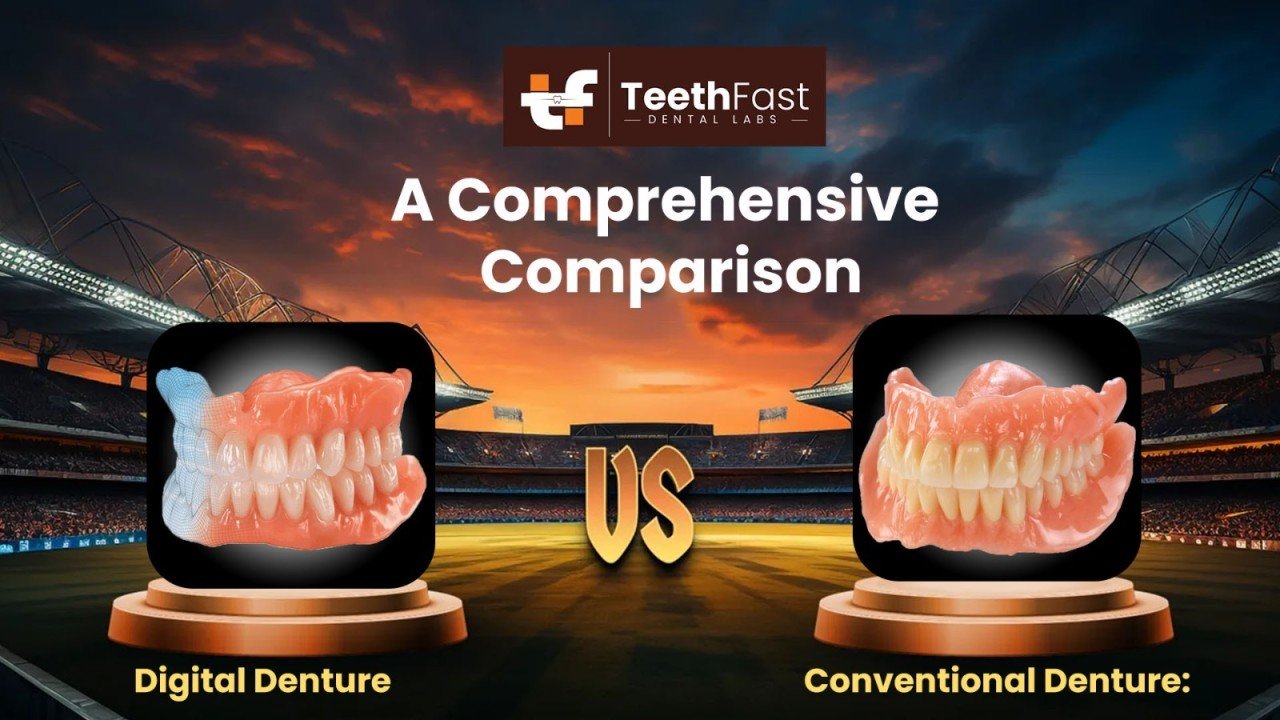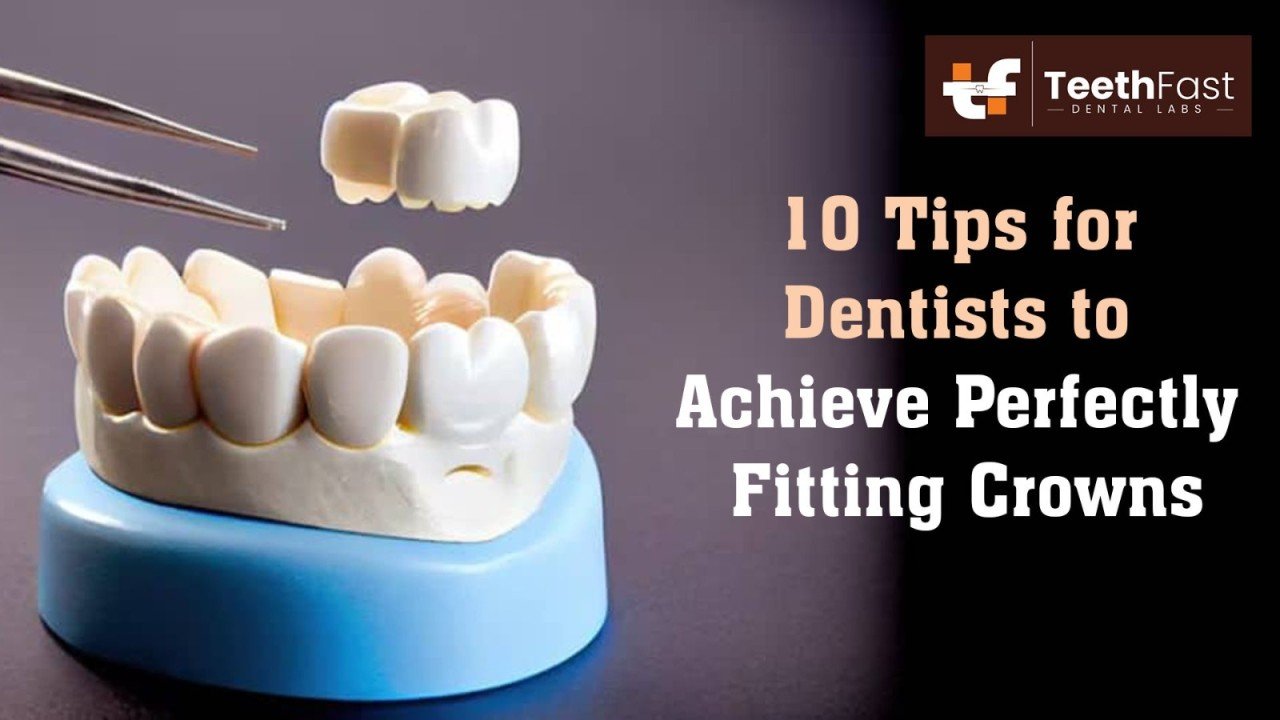In the realm of dental prosthetics, the choice between digital dentures and conventional dentures represents a significant decision. Each type has its own set of advantages and limitations, and understanding these differences can help you make an informed choice about which option is best for your needs. This comprehensive guide will delve into the key aspects of digital dentures and conventional dentures, comparing their processes, benefits, drawbacks, and overall impact on patient care.
1. What Are Conventional Dentures?
Conventional dentures are the traditional solution for replacing missing teeth. The process involves several steps:
1. Initial Impressions: The dentist takes physical impressions of your mouth using a soft, pliable material. These impressions are used to create molds of your oral structures.
2. Wax Try-ins: A wax model of the denture is created to check the fit, bite, and aesthetics. Adjustments are made as needed.
3. Final Fabrication: Once the wax model is approved, a final denture is crafted from durable materials such as acrylic resins and metal.
4. Fitting and Adjustments: The completed dentures are fitted, and any necessary adjustments are made to ensure comfort and function.
2. What Are Digital Dentures?
Digital dentures use modern technology to streamline and enhance the denture creation process. The key steps include:
1. Digital Scanning: A 3D scan of your mouth is taken, creating a detailed digital model of your oral structures.
2. CAD Design: The digital model is used to design the dentures with computer-aided design (CAD) software, allowing for precise customization.
3. CAM Manufacturing: The design is sent to a computer-aided manufacturing (CAM) machine, which fabricates the dentures using techniques like 3D printing or milling.
4. Fitting and Final Adjustments: The dentures are fitted, and any necessary adjustments are made to ensure a perfect fit.
3. Accuracy and Precision
Conventional Dentures:
- Impression Accuracy: Conventional dentures rely on physical impressions, which can sometimes be less precise due to factors like material shrinkage or patient movement.
- Fit and Adjustments: Multiple fittings and adjustments may be needed to achieve a proper fit, which can be time-consuming and uncomfortable.
Digital Dentures:
- Digital Scanning: Digital scans provide highly accurate and detailed impressions of your mouth, reducing the likelihood of errors.
- Precision Fit: The CAD design process allows for precise customization, resulting in a better initial fit and often fewer adjustments.
4. Speed of Production
Conventional Dentures:
- Time-Consuming Process: The process from initial impressions to final fitting can take several weeks, as it involves multiple stages and manual fabrication.
Digital Dentures:
- Faster Turnaround: The digital process is generally quicker, with the potential for the entire process to be completed in a matter of days. This includes faster design and manufacturing thanks to technology like 3D printing.
5. Customization and Aesthetics
Conventional Dentures:
- Limited Customization: While some customization is possible, adjustments to tooth shape, color, and alignment are generally more limited and less precise.
Digital Dentures:
- Enhanced Customization: CAD technology allows for extensive customization, including detailed adjustments to tooth shape, size, color, and alignment. This results in a more natural and personalized appearance.
6. Comfort and Fit
Conventional Dentures:
- Adjustments Needed: Achieving a comfortable fit often requires several adjustments. The process can be time-consuming and may result in temporary discomfort.
Digital Dentures:
- Improved Fit: The precise nature of digital scans and CAD design often leads to a more comfortable and well-fitting denture from the start. Fewer adjustments are typically needed.
7. Durability and Material Quality
Conventional Dentures:
- Material Choices: Traditional dentures are usually made from acrylic resins and metal, which are durable but may require occasional replacements or repairs.
Digital Dentures:
- Advanced Materials: Digital dentures are crafted from high-quality materials like acrylic resins and zirconia, offering durability and resistance to wear. Advanced manufacturing techniques can also improve material consistency.
8. Maintenance and Care
Conventional Dentures:
- Regular Care: Conventional dentures require regular cleaning and maintenance, including periodic adjustments and potential repairs.
Digital Dentures:
- Similar Care: Digital dentures require similar care to conventional ones, including regular cleaning and dental check-ups. However, their improved fit and durability may reduce the frequency of adjustments and repairs.
9. Cost Considerations
Conventional Dentures:
- Generally Lower Initial Cost: Traditional dentures may have a lower initial cost due to fewer technological expenses. However, the potential for more frequent adjustments and repairs can add to the overall cost.
Digital Dentures:
- Higher Initial Cost: Digital dentures can be more expensive due to the advanced technology and materials used. However, the benefits of accuracy, customization, and reduced adjustment time may provide long-term value.
10. Technology Integration
Conventional Dentures:
- Less Technologically Advanced: Conventional dentures rely on manual processes and less advanced technology, which can limit precision and efficiency.
Digital Dentures:
- High-Tech Approach: Digital dentures incorporate advanced technologies like 3D scanning, CAD, and CAM, resulting in enhanced accuracy, efficiency, and customization.
11. Impact on Oral Health
Conventional Dentures:
- Potential for Issues: Traditional dentures that do not fit properly can cause discomfort, oral sores, or even impact oral health negatively.
Digital Dentures:
- Better Fit and Function: The improved fit and comfort of digital dentures can contribute to better oral health by reducing the risk of sores and improving overall function.
12. Longevity and Durability
Conventional Dentures:
- Durable but Not Immune to Wear: Conventional dentures are durable but may need replacements or repairs over time due to wear and tear.
Digital Dentures:
- Long-Lasting: With high-quality materials and precise manufacturing, digital dentures often have a longer lifespan and may resist wear better.
13. Patient Experience
Conventional Dentures:
- Traditional Process: The conventional process can be lengthy and involve multiple visits, which may impact patient convenience and comfort.
Digital Dentures:
- Streamlined Experience: Digital dentures offer a more streamlined process with potentially fewer visits, leading to a more convenient and comfortable patient experience.
14. The Future of Dentures
Conventional Dentures:
- Established Method: Conventional dentures are a well-established method with a long history of use, but they are less likely to incorporate new technological advancements.
Digital Dentures:
- Innovative Advancements: Digital dentures are at the forefront of technological innovation, with ongoing developments in materials and techniques likely to enhance their effectiveness and patient outcomes.
15. Choosing the Right Option
The choice between digital and conventional dentures depends on various factors, including:
- Budget: Consider your budget and the potential long-term value of each option.
- Technology Preference: If you prefer the latest technology and customization, digital dentures may be the better choice.
- Time and Convenience: Digital dentures offer a faster and more streamlined process, which can be a significant advantage if you are looking for efficiency.
Conclusion
Digital dentures and conventional dentures each have their unique benefits and considerations. Digital dentures represent a significant advancement in dental technology, offering enhanced accuracy, faster production, and greater customization. Conventional dentures, while effective and time-tested, involve a more traditional process with potential limitations in precision and comfort.
Ultimately, the best choice for you will depend on your specific needs, preferences, and circumstances. Consulting with your dentist will help you evaluate the options and determine which type of denture aligns best with your oral health goals and lifestyle. Whether you choose digital or conventional dentures, both options aim to restore function and aesthetics, enhancing your quality of life.





